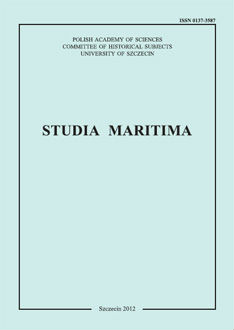The British Government and the Naval Disarmament Conference in Geneva (1927)
The British Government and the Naval Disarmament Conference in Geneva (1927)
Author(s): Krystian Maciej SzudarekSubject(s): History
Published by: Wydawnictwo Naukowe Uniwersytetu Szczecińskiego
Keywords: Great Britain; naval disarmament; Coolidge Conference
Summary/Abstract: The Naval Disarmament Conference was held in Geneva between 20 June - 4 August 1927 on the initiative of the American President Calvin Coolidge. It was a continuation of the process initiated during the Washington Conference (12 November 1921 - 6 February 1922). It was then that Great Britain, the United States of America, Japan, France and Italy determined the ratio of the naval forces in the class of battleships and aircraft carriers in line with the following: 5:5:3: 1.75 : 1.75. During the so-called Coolidge Conference (1927) the American party did its best to conclude an international treaty and consequently achieve parity between the US Navy and Royal Navy in all classes of warships. The British government accepted an invitation to the Geneva Conference (1927) assuming that their delegation would succeed in forcing through the disarmament plan formulated by the Admiralty. The plan was aimed at modifying the Washington Treaty in order that the British Empire could make savings and at the same time improve her national security. The British plan was aimed at prolonging the service life of battleships and aircraft carriers, reducing the displacement and calibre of guns carried by battleships, and, last but not least, dividing the cruisers into heavy and light as well as imposing limitations only on the number of the former. The British plan met with strong objection from the American delegation. Attempts made to reach a consensus over parity between the Royal and US Navy in the class of cruisers were unsuccessful, and the conference eventually turned into a fiasco. Such a state of affairs had to do with strategic, political and economic issues. The Admiralty opposed to reaching an agreement which put the security of the British Empire at a serious risk, and the majority of the British ministers were inclined to believe that the conference breakdown would be lesser evil than agreeing to the American demands. The British diplomats strove for adopting a common stance with the Japanese delegation in order that the responsibility for the conference collapse rested with the American party.
Journal: Studia Maritima
- Issue Year: 27/2014
- Issue No: 1
- Page Range: 87-151
- Page Count: 65
- Language: English

